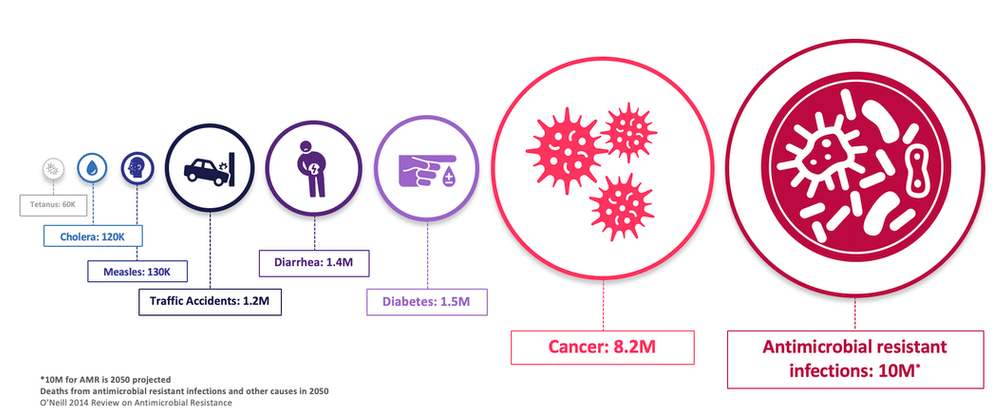A failed clinical trial for Appili Therapeutics, iA Capital reports

iA Capital Markets analyst Chelsea Stellick says Appili Therapeutics (Appili Therapeutics Stock Quote, Chart, News TSX:APLI) is still a “Speculative Buy” but circumstances have changed substantially for the company. In an update to clients on Friday, Stellick dropped her target price to $0.50/share from $2.50/share for a potential return at the time of publication of 163 per cent.
Founded in 2015 and headquartered in Halifax, Appili Therapeutics is a biopharmaceutical company with a pipeline of infectious disease programs, with the ATI-2307 (antifungal), ATI-1701 (biodefence), ATI-1503 (antibiotic), and ATI-1501 (anti-infective) programs all focused on various unmet medical needs.
Stellick’s latest analysis comes after the company announced the results of its trial for Favirapir (marketed as Avigan/Reeqonus), which ultimately didn’t lead anywhere, as the Phase 3 PRESECO (PREventing SEvere COVID-19) clinical trial did not meet statistical significance on its primary endpoint, time to sustained clinical recovery, on a sample size of 1,231 patients with mild-to-moderate COVID-19 from 38 study sites across the United States, Mexico, and Brazil.
“Although APLI did not release any trial data and additional analyses are ongoing, since secondary endpoints are typically powered for significance only if the primary endpoint achieves significance, we expect all endpoints to be technically unsuccessful,” she said. “Therefore, we believe this top line result marks the end of favipiravir development by APLI, particularly in light of the recent Paxlovid efficacy being reported as extremely strong which reduces the unmet need in this patient population.”
Appili’s stock price has plummeted over the last week, having lost 70.1 per cent of its value as a critical part of losing 80.2 per cent of its value over the course of the year. The drop is further punctuated when extending the stock’s performance out to September 30, as its value has fallen 78.7 per cent in that timeframe.
“While we are disappointed by the topline results of the PRESECO trial, we remain steadfast in our belief that safe and effective oral antivirals are urgently needed for patients who are still struggling to overcome COVID-19. We wish to thank all the patients who participated, and hope that information obtained from our trial can help guide research and development around more potential treatment options for COVID-19,” said Dr. Armand Balboni, Chief Executive Officer, Appili Therapeutics in the company’s November 12 press release. “Appili remains committed to addressing the challenges posed by infectious diseases and we will continue developing our pipeline to improve patient lives around the world.”
With the favipiravir development likely at an end for Appili, Stellick noted that the company will turn its attention to the opportunities within the rest of its pipeline, namely with ATI-2307, the company’s novel clinical-stage antifungal candidate against Cryptococcus and multi-drug resistant Candida, for which Appili intends to submit a Phase 2 trial protocol to the FDA by year end, which Stellick gives a 20 per cent probability of success.
In addition to pushing forward with ATI-2307, the company’s pipeline also includes ATI-1701 (12.5 per cent probability of success), the company’s vaccine candidate against the F. tularensis bacterium, classified by the US National Institutes of Health (NIH) as a Category A (highest risk) pathogen; ATI-1503, the company’s program targeting gram-negative bacteria which has been backed by the NRC, NIAID, and the U.S. Army’s Peer Reviewed Medical Research Program; and ATI-1501 (75 per cent probability of success), an oral liquid suspension form of metronidazole, which treats parasitic and anaerobic bacterial infections that severely impact elderly and pediatric populations.
With favipiravir’s probability of success now wiped out in her analysis, Stellick has made significant changes to her financial forecasts, not projecting any revenue until 2023 with ATI-1501 ($1 million), with a projected doubling to $2 million in 2024. Meanwhile, after a one-time $200 million revenue projection for ATI-1701 to boost the cumulative 2025 projection to $204 million, Stellick projects a drop to $4 million in 2026 before potential ATI-1501 revenue comes into play, starting the potential growth ramp at $13 million in 2027 before steadying at $15 million through 2031.
Meanwhile, with the continued research and development into its other drug candidates, Stellick projects the company’s EBITDA to be negative in every year between 2022 and 2031, with forecasted losses ranging from $18 million in 2023 to $3.7 million in 2031. The lone outlier in the decade projections is 2025, where positive EBITDA of $144.3 million is in play.
“Pending further comments when the full dataset from PRESECO is released, we believe it is appropriate at this time to fully discount favipiravir to no residual value,” Stellick said. “On this basis, we believe this morning’s move down on the PRESECO failure constituted the full move downward, and we believe the residual assets in APLI’s pipeline will provide sufficient value for the stock to rebound once the rest of the pipeline becomes front and centre going into the new year.”

Geordie Carragher
Writer
Geordie Carragher is a staff writer for Cantech Letter

